Predicted SA citrus exports reflect continued challenges



IRATI
AN EARLY SHORT DAY HYBRID ONION
Excellent golden brown colour
• Widely adaptable and bolt-tolerant
• Good storage capability
• Tight necks and outstanding scale retention
MAIN SHORT DAY F1 HYBRID ONION WITH EXCELLENT QUALITY
Very adaptable and high yielding
• Good skin retention
• Machine-harvestable
• Storability: 4 - 6 months
EARLY MATURING INTERMEDIATE DAY HYBRID ONION WITH EXCELLENT QUALITY
• Excellent quality variety
• Good skin retention
• High yield potential
TUSKER
MAIN SHORT-DAY F1 HYBRID ONION WITH EXCELLENT QUALITY AND PINK ROOT
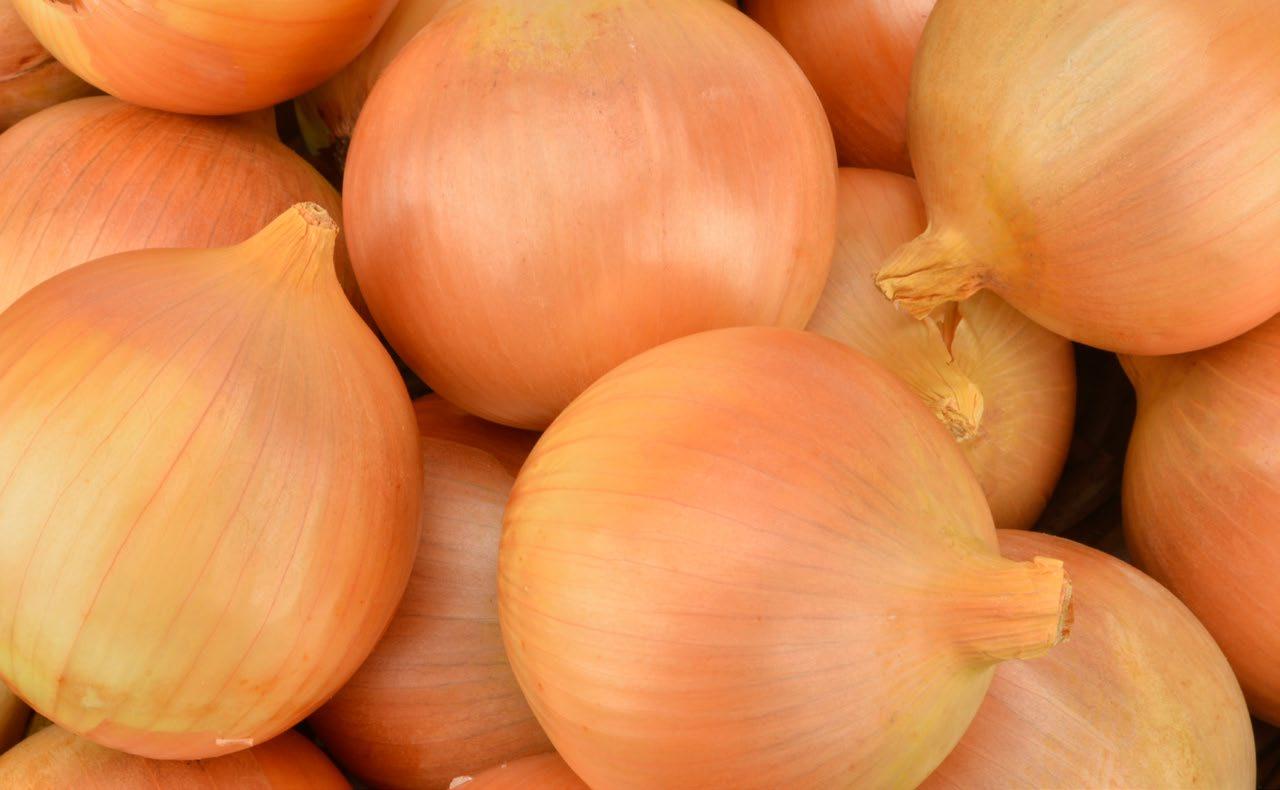
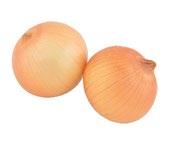
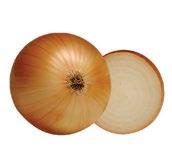
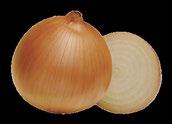
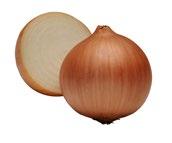
Very adaptable and high yielding
• Excellent skin retention
• High Pink Root resistance
ASKARI
EARLY SHORT-DAY HYBRID ONION WITH EXCELLENT QUALITY
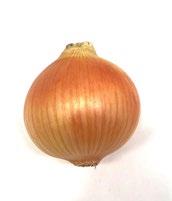

Very adaptable variety
• Excellent skin retention
• High yield potential
KRATOS
LATE SHORT-DAY/EARLY INTERMEDIATE DAY HYBRID ONION
• Excellent quality globe shaped variety
• Excellent tight shinny skin and colour
• Very good yield
Edition 213 ISSN 1015-85 37 www.vegetablesandfruitmagazine.co.za 10
EDITORIAL
Willie Louw (Group editor)
Carien Daffue (Editor)
082 927 8294 018 293 0622 info@mediakom.co.za PO BOX 20250, Noordbrug, 2522
ADVERTISING
Jana Greenall
011 476 3702 082 780 9914 mediacom@lantic.net
DESIGN
Mercia Venter studio.chatnoir@gmail.com
NEWS
4 Support for AgriCareers roadshow
4 CGA writes to national government ahead of looming EU FCM regulation crisis
5 SA agricultural machinery sales
5 Sakata new top management
6 Investing in African solutions towards maximising farm-level productivity
8 Tongaat Hulett and Gledhow Sugar mill defaults cost growers R1 billion
9 South Africa to host eleventh World Avocado Congress
9 Dieselube for machine durability
9 New protection managing director for Villa Crop
CITRUS
10 Key challenges needed to be overcome to ensure the survival of citrus
12 Predicted SA citrus exports reflect continued challenges
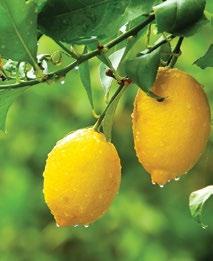

13 Transnet gearing up for reefer season 2023
14 The perfect parasitoid
Bly ingelig en volg ons op Facebook. Keep up to date and follow us on Facebook.


Besoek ons webtuiste | Visit our website: Groente & Vrugte | Vegetables & Fruit www.facebook.com/SAGroenteenVrugte
www.vegetablesandfruitmagazine.co.za
intekening beskikbaar - besoek
www.vegetablesandfruitmagazine.co.za
1 Year @ R235.00 (6 issues)
2 Years @ R450.00 (12 issues)
ROOT VEGETABLES
16 Rooting for health: the nutritional benefits and versatility of beetroot and carrots

18 Important tips on how to manage nutrient reactions in irrigation water and soil

20 Reflecting on two contrasting onion seasons
STONE FRUIT
37,3 million (15 kg) cartons of lemons will be exported to key markets, which is an increase compared to 2022. Available
22 Gewasbeskerming tydens die winterseisoen vorm die basis van ’n suksesvolle kernvrugoes
GENERAL
24 Navorsing plaas avokadobedryf op die voorvoet
26 Packhouses help growers out
28 Draft regulations on the labelling and advertising of food
30 Targeting two pest with one biological
While the official unemployment rate has eased marginally to 32,7%, South Africa’s unemployment rate is still one of the worst in the world, with 7,8 million people unemployed. Even more concerning is the country’s youth unemployment. Accounting for over half of SA’s employable population, this unemployment statistic sits at 43%.
To highlight the many career opportunities within the agricultural sector, Bayer Crop Science is sponsoring the AgriCareers Roadshow to enable as many students as possible to learn about the many exciting and rewarding career options in agriculture. This nationwide project introduces grade 9 to 12 learners to study and career opportunities in South Africa’s dynamic agriculture sector.
“Bayer supports the AgriCareers Roadshow as part of our focus in youth development, helping learners to discover the various opportunities that exist within agriculture,” says Liza Bohlmann, Media Liaison at Bayer Crop Science.
“Pursuing a career within the very sector that produces the food we eat not only offers many employment opportunities but is also a vital industry to tackle poverty, food security, and environmental impact. The agricultural sector is also one of the most resilient sectors in terms of job creation.
“You can become anything from a farmer, scientist, lawyer,
economist or technologist within the field of agriculture. The career options vary from working with highly advanced artificial intelligence to studying microorganisms in the soil and everything in between. There is even a space for journalists specialising in reporting on agricultural matters,” Bohlmann says.
The AgriCareers roadshow is expected to attract 20 000 learners in 2023, with nearly 7 000 learners having already attended events in Limpopo, Mpumalanga and Gauteng.
Bohlmann was part of a panel of experts at Morgenzon Landbou Akademie in Mpumalanga and Bekker High School in Magaliesburg, sharing experiences and insights with eager learners.
“We are happy to support this initiative and look forward to knowing that many of the bright young learners we’ve met along the way may follow a career in agriculture one day,” Bohlmann says.
The stops on the nationwide roadshow include KwaZuluNatal and the Eastern Cape in March, after which it will move to various schools within the Northern Cape, Western Cape, Free State and North West.
For more information, go to https://agricareers.co.za/ and Working-at-Bayer | Bayer South Africa.
The Citrus Growers Association of Southern Africa (CGA) has written to Minister of Trade, Industry and Competition Ebrahim Patel and Minister of Agriculture Thoko Didiza requesting an urgent update about the government’s interventions to help resolve the current impasse between South Africa and the European Union (EU) concerning the new false coddling moth (FCM) regime governing the importation of South Africa oranges to the region.
Despite months of consultations between both parties at a World Trade Organisation (WTO) level, it appears very limited progress has been achieved to avert the crisis that will face the industry should growers have to implement these new regulations when oranges start being shipped to European markets.
This includes an estimated R500 million in losses to growers and around 20% of oranges produced for Europe not being shipped this season. With the industry facing several serious headwinds over the past two years, including soaring farm input and shipping costs; power outages and operational issues at ports, the 2023 season will be a make-or-break one for many growers. As a result, these new regulations, if implemented when the season kicks off, could be the final nail in the coffin for many of them as well as the thousands of jobs they support.
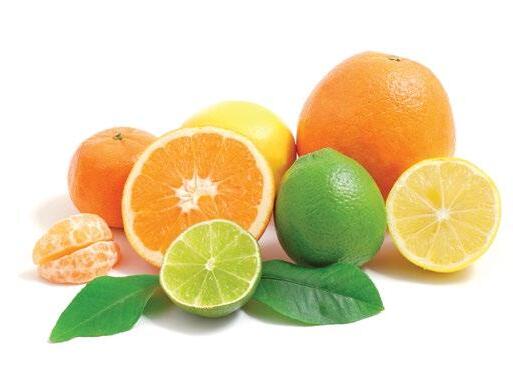
The CGA is grateful for the support shown by the national government to date, but to safeguard the future sustainability of the industry as well as the 130 000 jobs it supports, urgent action must be taken to avert the impending crisis facing the sector. This should include taking the next step, which is calling for the establishment of a WTO panel to adjudicate on the matter.
The CGA maintains the position that the unjustified, discriminatory and scientifically flawed new regulations are nothing more than a political move by Spanish producers to block South African citrus from entering the EU region. The national government must draw a line in the sand, to put a stop to this looming crisis threatening the number one agricultural exporter in the country. The CGA remains committed to continue working with the national government on this critical matter to ensure the short-term and long-term survival of the industry
The industry is emerging from years of exceptionally higher agricultural machinery sales in South Africa. For example, South Africa’s tractor sales for 2022 amounted to 9 184 units, up 17% from the previous year and the highest annual sales for the past 40 years. The combined harvester sales amounted to 373 in the same period, up 38% from 2021 and the highest yearly sales figure since 1985.
This year will likely be a pause from this robust sales period for several reasons. Chief amongst them is that the possible replacement rate of older machinery will likely be lower this year as the past three years saw increased new machinery sales. Moreover, the rising interest rates will continue to pressure farmers’ finances. While other input costs prices, such as fertilizer and agrochemicals, have softened in recent months, the current price levels are still well above long-term levels, thus adding pressure on farmers’ finances.
The data for the first two months of 2023 already signal this moderation, with January tractor sales down by 16% y/y
Sakata Seed Southern Africa (Pty) Ltd announce the retirement of their Managing Director, Lindsay Campleman, who has been part of the company for more than three decades. Lindsay joined Sakata as financial director and also served as commercial director. In 2009, he assumed the position of Managing Director, while retaining the commercial role and leading the company's growth and profitability for the last 14 years.
Susan Allen takes over as Managing Director and Jan-Louis Bezuidenhout as Commercial Director. Allen is an experienced supply chain director, having worked in the agricultural industry and specifically the vegetable seed business for many years. Allen holds a BSc degree in botany, microbiology, and plant pathology, as well as a BSc Honours degree in Plant Pathology (with Horticulture) and started her career as a sales representative more than 30 years ago. She moved into supply chain management 18 years ago and has been responsible for seed production and processing, quality assurance, warehousing, inventory control, and factory seed packing for both the professional and hobby markets since then. Throughout her career, Allen has been an active participant in the South African National Seed organisation, including a term as Chairman of the Board of Directors.
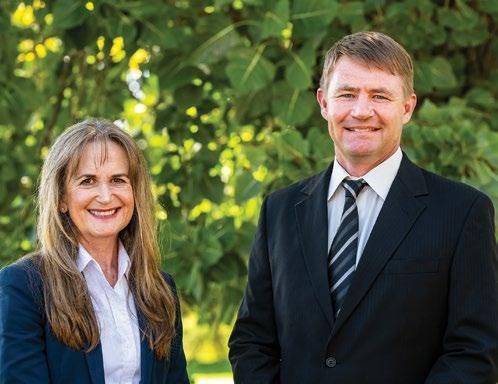
Jan-Louis Bezuidenhout, Commercial Manager for Professional Vegetables will be assuming the position of Commercial Director where he will oversee sales and product development for Professional Vegetables, and MayFord branded products,
and February sales down by 2% y/y, with 781 units sold.
That said, the combined harvester sales have remained positive for this year’s first two months. There were 16 units sold in January 2023, from four in the same month a year ago. In February, there were 39 units sold, from 19 units in the same period in 2022.
This could partly be explained by the fact that there are expectations of large summer grains and oilseeds in the 2022/23 season, which farmers are likely preparing for. The Crop Estimates Committee forecasts South Africa’s 2022/23 summer crop production at 19,3 million tonnes, up 3% from the previous season. Still, the factors I highlighted as risks to tractor sales apply in the combine harvester market and could weigh on sales in the coming months.
Admittedly, one shouldn’t conclude on two months’ data points. Still, given the broad factors we note above, which will underpin the market conditions this year, we continue to see softening in the momentum of tractor sales in 2023. With time, the combined harvester sales will likely follow the same path.
including packets for the retail trade as well as flowers and grass seed for the professional markets. After finalising his MSc. (Agric) degree in Horticulture, Bezuidenhout joined Sakata in as a Junior Trial Officer and was later appointed as Product Development Manager. During his tenure in product development, Bezuidenhout launched various new commercial varieties including butternuts Pluto and Quantum, which making Sakata the market leader in this segment since 2009.
Sakata Seed Corporation of Japan with a well-established R&D, production and sales network provides high-quality seed to more than 170 counties globally and celebrates its 110th anniversary this year. Sakata Seed Southern Africa is a subsidiary of European Sakata Holdings, with Sakata Seed Corporation of Japan being the ultimate holding company and is responsible for sales in Sub-Saharan Africa including Southern and East Africa.
Improving agricultural productivity will be central to addressing Africa’s growing food insecurity; this can only be achieved through the mitigation of waste, the development of sustainable new agritech solutions, and the reintegration of the continent's fertilizer value chain.
According to the 2022 global report on food crises, an estimated 140 million people in Africa face acute food insecurity, but for Mandla Mpofu, Managing Director for Omnia’s Nutriology® division, the power to reverse this lies in the hands of Africans.
“Every year, innovative new agricultural solutions are emerging in Africa. Local farming communities are determining new sustainable business practices that the rest of the globe could implement to reduce the massive amount of food waste we see each year,” he says.
From borehole and drip irrigation advances in Lesotho to climate-smart agriculture scaling in Kenya, local solutions are making their mark across Africa and beyond. To further address water scarcity across South Africa, Omnia provides farmers with a series of sensors and emerging technology on pivots (OmniPivot) and drip systems (OmniDrip) to maximise water efficiency. This augments Omnia’s commitment to reducing the carbon footprint of products, and the organisation’s sustainability purpose.
The World Bank’s recent announcement echoes this, with news that it is ramping up its efforts and joining forces with partners across the African food systems landscape to help place the continent’s agricultural sector at the heart of global food security and climate resilience.
“But it is up to us, as the private sector partnering with the public sector and other non-governmental organisations, to contribute to these developments through the shared process, product, service, and technological enhancements. However, as we do this, we must balance African development with the mitigation of our own impact on the environment. Our growth strategy at Omnia is linked directly to our environmental strategy, which is to leverage technology to conduct our business, and positively impact our customers, in the most sustainable manner possible,” he says.
Recently, Mpofu headed a team from Omnia at the Argus Africa fertilizer conference in Kenya, where more than 150 companies from 40 countries discussed trends that will likely influence food and agribusiness economics over the next decade in Africa.
A recurring theme throughout the conference was the link between agribusiness and environmental, social, and governance (ESG) strategies and sustainability. Through this lens, topics like the localisation of fertilizer production, fertilizer affordability, the integration of the fertilizer industry and the need for more eco-friendly biological fertilizers were examined.
Despite its vast agricultural potential, and the fact that the majority of the labour force works in agriculture, Africa remains a net food importer and has a food trade deficit. This
increases Africa’s vulnerability, especially in crisis times like the COVID-19 pandemic and the Russia-Ukraine war. Strong support for the fertilizer value chain has the potential to accelerate the continent’s journey toward a more competitive agriculture sector.
“These challenges laid bare the need for localisation of fertilizer production in Africa and for the formalisation of the industry to guard against future instability. The industry needs to actively corroborate to reset fertilizer pricing to better support farmers and ensure food security on the continent. This will need to be done with a focus on increasing trade in biological fertilizers to remain on par with global standards. Integrating Africa’s fertilizer industry, within and between the private and public sectors, is crucial in reaching these goals,” Mpofu said.
Omnia’s own AgriBio chemical research has a keen focus on ESG, with food security, sustaining livelihoods and responsible resource extraction at their core. In particular, Omnia’s Nutriology® model (or “the science of growing”) is a holistic programme that takes a comprehensive view of the health of the land and the tailored solutions required to make it optimal for growth.
“Supplementary products are fast becoming vital to optimising crop yields beyond traditional fertilizers. With progressive farming practices, the products and services employed must consider nutrient use efficiency (NUE), water use efficiency (WUE), soil sample data, remote sensing and precision farming applications to optimise farm-level production,” says Mpofu.
Biostimulants, for example, assist the plant in absorbing nutrients more effectively in normal conditions but also induce responses to better tolerate stressful environmental conditions, such as droughts, frost and heatwaves, limiting loss while still being environmentally friendly.
From a research and development perspective, Mpofu believes that a focus on soil health will be essential to reduce nutrient requirements. “New grades with various levels of nitrogen, phosphorus, and potassium are currently being explored to maximise nutrient uptake without any side effects. We have also engaged in research and development around the use of bacteria to improve both soil health and plant growth. We are seeing positive results in terms of the use of enzymes/bacteria to support nitrogen fixation in the soil to improve soil health whilst the use of enzymes in specific combinations can improve plant health – specifically root development to enhance nutrient uptake,” he says.
Ultimately, says Mpofu, it will be up to stakeholders across the agricultural sector to create favourable conditions for future farmers – even in the face of climate change – to maximise yields and profitability, lower food costs for consumers, and maintain a sustainable food ecosystem.